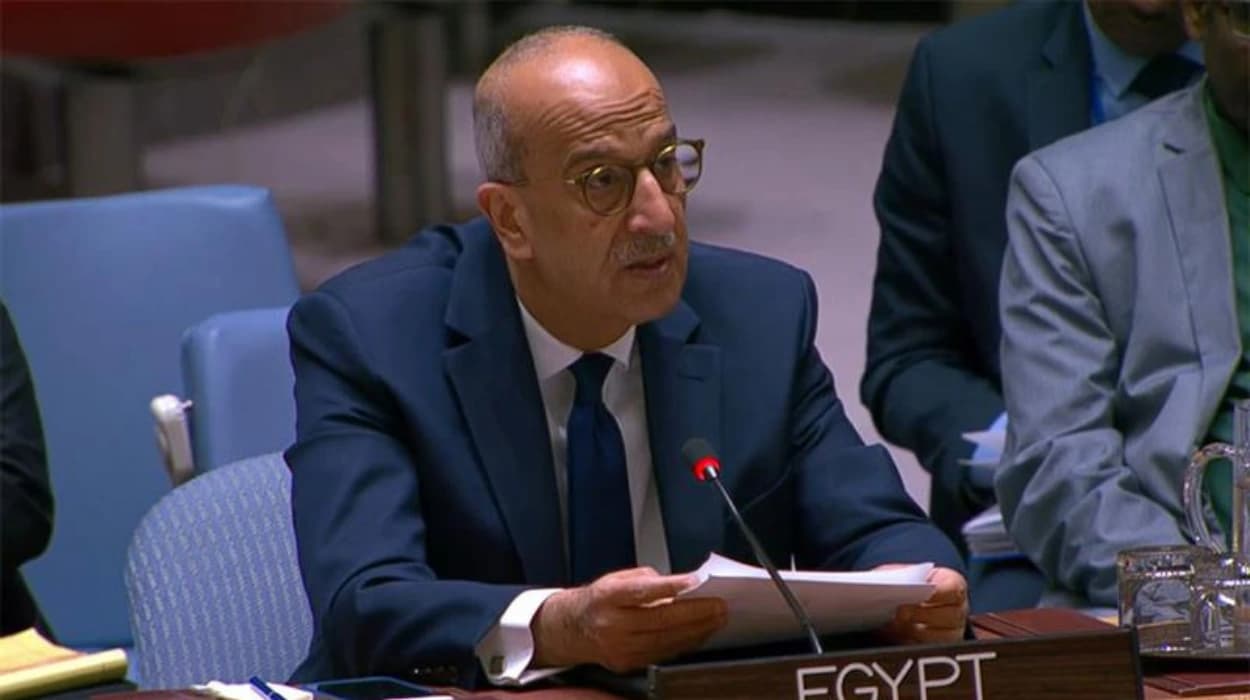Egypt’s Foreign Minister vehemently condemned Israel’s
ongoing policy of starvation against the Gaza Strip, urging international
community intervention while highlighting the devastating humanitarian impact.
He called for immediate action to alleviate the suffering of the Palestinian
people amid increased blockade measures.
Egypt’s Strong Statement Against Israeli Policy
As reported by journalist Ahmed El-Sayed of Al-Ahram, Egypt's Foreign Minister Sameh Shoukry condemned Israel's policy targeting the Gaza Strip, describing it as a deliberate attempt to impose starvation on the Palestinian population. Shoukry stated,
“The ongoing blockade and restrictions have created an unbearable situation for civilians, cutting off essential supplies and humanitarian aid” (El-Sayed, Al-Ahram).
This condemnation comes amid escalating tensions in the
region, where the Gaza Strip faces severe shortages of food, fuel, and medical
supplies due to tightened Israeli controls on borders and crossings. The
Foreign Minister called on the international community to intensify diplomatic
efforts and humanitarian assistance to prevent a further catastrophic
humanitarian crisis.
Humanitarian Toll in Gaza
According to a report by Layla Hassan from Middle East Eye, the Israeli blockade has led to critical shortages that affect every aspect of life in Gaza. Hassan notes that the starvation policy is not only a direct assault on the population’s survival but also worsens existing health crises, particularly for children and the elderly.
“Hospitals are stretched beyond capacity with dwindling supplies of essential medicines and fuel for generators,” Hassan wrote (Hassan, Middle East Eye).
UN agencies have repeatedly warned about the deteriorating
conditions in Gaza, with the UN Relief and Works Agency highlighting that over
70% of Gaza's population relies on aid for survival. The blockade and the
resultant severe import restrictions are seen as key drivers of the current
humanitarian emergency.
Regional and International Reactions
According to Emily Parker of Reuters, Egypt has stepped up
diplomatic engagement with key international stakeholders, including the United
Nations and the European Union, to push for easing the embargo. Parker reported
that Shoukry met with the UN Special Coordinator for the Middle East Peace
Process, urging urgent steps to restore the flow of basic goods into Gaza.
Moreover, the Egyptian Foreign Minister criticized not only Israel but also the lack of decisive international action to counteract the embargo.
“The international community must hold Israel accountable for policies that collectively punish innocent civilians and violate international law,” Shoukry said in his statement (El-Sayed, Al-Ahram).
Israel’s Position and Response
As per an analysis by Tom Cohen of CNN, Israel defends its
restrictions on Gaza as necessary security measures against Hamas. Israeli
officials argue that the blockade aims to prevent arms smuggling and attacks,
though critics accuse Israel of using these justifications to impose collective
punishment on Gaza’s civilian population. Cohen highlighted statements from the
Israeli Ministry of Defence affirming their commitment to balancing security
with efforts to allow humanitarian aid, though international scrutiny
continues.
Impact on Egypt-Gaza Relations
Given Egypt’s geographic and political proximity to Gaza,
the country faces significant implications from the crisis. Journalist Nour
El-Din from The National explains that Egypt’s government faces domestic and international
pressure to act as a mediator and provide aid through the Rafah border
crossing, one of the few gateways into Gaza not controlled by Israel.
El-Din notes that Egypt has intermittently opened the Rafah
crossing to allow limited humanitarian shipments and medical emergencies but
faces challenges in balancing security concerns with humanitarian needs
(El-Din, The National).
Calls for Long-term Solutions
International experts and regional diplomats quoted by
Fatima Zahra of Al Jazeera argue that beyond the current emergency, a
sustainable and peaceful resolution to the Gaza blockade and
Israeli-Palestinian conflict is essential to prevent recurring humanitarian
disasters. Zahra outlined that Egypt’s Foreign Minister urged renewed peace
negotiations and respect for international humanitarian law as necessary steps
forward (Zahra, Al Jazeera).
The condemnation by Egypt’s Foreign Minister Sameh Shoukry of Israel’s starvation policy against Gaza is a significant diplomatic signal underscoring the urgency of the humanitarian crisis. The call for international intervention and accountability reflects growing regional and global concern about the severe impact on Gaza’s population. As diplomatic efforts continue, the situation remains precarious, with the lives of millions in Gaza hanging in the balance under tightened restrictions and ongoing conflict.
